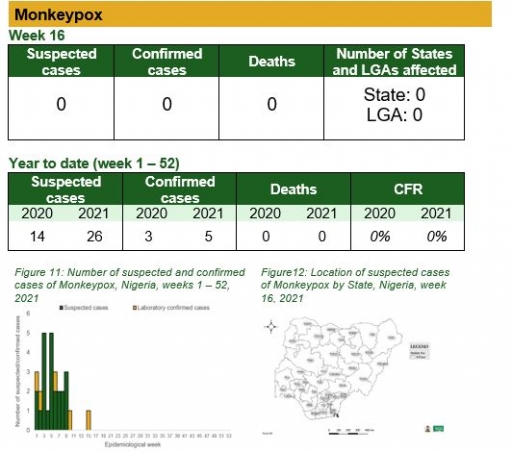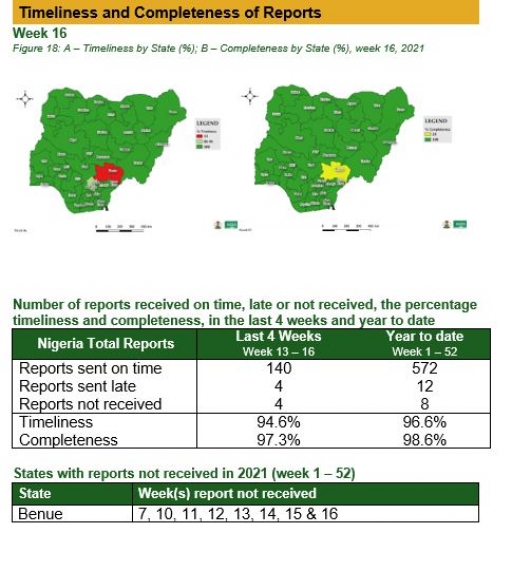In the last five years, the Nigeria Centre for Disease Control (NCDC) has responded to outbreaks of epidemic prone diseases and other public health threats, adopting effective coordination through Emergency Operations Centres as one of our key strategies. In 2017, a national Public Health Emergency Operation Centre (PHEOC) was established as the NCDC Incident Coordination Centre (ICC) to serve as the national public health intelligence and response coordination hub. Using the principle of the incident management system, the ICC is being operatiionalised to monitor signals and coordinate outbreak response.
Aside the national ICC, the NCDC has also supported all the 36 states and the Federal Capital Territory in Nigeria to establish and support state-level PHEOCs. We are proud of our state colleagues as they continue to leverage these structures to respond to and control public health emergencies in a timely and coordinated manner. The usefulness of these structures in the overall national and state-wide response to the current coronavirus disease (COVID-19) outbreak cannot be over-emphasised.
In addition, the NCDC has continued to explore diverse opportunities and strategies to build the capacity of the critical mass of the national and sub-national frontline public health workforce. One of these is the public health emergency management (PHEM) basic course (BC) programme recently established through partnership between the NCDC and US-Centres for Disease Control and Prevention (US-CDC). This is a three tiered programme with the PHEM BC level 3 being preceded by online PHEM BC levels 1 and 2. .
In line with the above, the NCDC and US-CDC from 12th -17th April, 2021 conducted a PHEM training for public health workforce drawn from national and subnational institutions. The overall objective of the training was to strengthen the capacity of both national and sub-national frontline responders on PHEM according to minimum common standards and global best practices.
Key outputs from the training were trained public health workforce with mastery of the PHEOC terminologies; appropriate application of the seven-step decision making process; PHEOC modes of operation; basic response management principles, etc.
Expansion and capacity building of the country’s public health workforce is an important aspect of disease preparedness activities. Hence, this training has provided additional pool of experts in the area of PHEM.
The NCDC will continue to support capacity building of the national and states’ workforce for an effective coordination of outbreak preparedness and response for national health security.
Summary of Incidents
Notes
1. Information for this disease was retrieved from the Technical Working Group and Situation Reports
2. Case Fatality Rate (CFR) for this disease is reported for confirmed cases only
3. Information for this disease was retrieved from IDSR 002 data
4. CFR for this disease is reported for total cases i.e. suspected + confirmed
5. Information for sentinel influenza was retrieved from the laboratory

Lassa Fever
Key points
â— There were 63 suspected cases, seven were laboratory confirmed and no death was recorded from 24 LGAs in 11 states
Actions
To date:
â— Conducted 2021 Lassa fever (LF) high burden states preparedness/response engagement meeting
â— Dissemination of reviewed case management and safe burial practices guidelines
â— Ensured all five LF molecular laboratories in the NCDC network are working at full capacity for timely testing of samples with reduced turnaround time
Planned:
â— Finalise LF five-year strategic plan

Cerebrospinal Meningitis (CSM)
Key points
◠There were 14 suspected cases of Cerebrospinal Meningitis (CSM) reported from 12 LGAs in five states (Bauchi – 1, Borno – 1, Ebonyi – 1, Katsina – 8 & Plateau - 3). None was laboratory confirmed and no death was recorded
Actions
To date:
â— National CSM TWG meets weekly to review reports from states and plan appropriately
â— Enhanced surveillance in all states
Planned:
â— Continue harmonisation of the national line list and SORMAS data
â— Continue to ensure that states reporting cases send their line lists and collect CSM samples

Yellow Fever
Key points
â— There were 40 suspected cases of Yellow Fever (YF) reported from 34 LGAs in 10 states and FCT. None were laboratory confirmed and no death was recorded
Actions
To date:
â— National YF multi-partner Technical Working Group (TWG) continues to coordinate activities across states.
â— Daily monitoring and analysis of surveillance data across the country to guide response activities
â— Ongoing validation of Mologic rapid test kit for Yellow fever
Planned:
â— Continue monitoring and analysis of YF (Yellow fever) data across all states and FCT to guide response
â— Continue coordination of prompt transportation samples to the laboratories

Cholera
Key points
◠There were 235 suspected cases of cholera reported from 11 LGAs in five states (Bauchi – 4, Bayelsa – 28, Kaduna – 3, Kano – 105 & Zamfara - 95). None were laboratory confirmed and thirteen deaths were recorded
Actions
To date
â— National Cholera Multi-Sectoral Technical Working Group (TWG) is monitoring all states and supporting affected states
â— Developed the 2021 Annual Cholera Preparedness and Response Work plan
â— Cholera jingles being aired in English and local languages across the country
Planned:
â— Continue follow up and monitoring of non-reporting states
â— Build capacity for sample collection, transportation, and laboratory diagnosis across states

Measles
Key points
â— There were 748 suspected cases of measles reported from 109 LGAs in 22 states and FCT. None were laboratory confirmed and five deaths were recorded
Actions
To date
â— National Measles TWG is closely monitoring measles surveillance data and providing feedback to relevant agencies and development partners
â— Ongoing weekly surveillance and laboratory data harmonisation
Planned:
â— Intensify follow up with states to update and transmit line list
â— Continue monthly measles surveillance data review

Monkeypox
Key points
â— There was no case of monkeypox recorded for this week
Actions
To date
â— National Monkeypox Technical Working Group (TWG) is monitoring activities in all states
Planned:
â— Enhance surveillance for monkeypox in high burden states
â— Continue harmonisation of the national line list and SORMAS data

Acute Flaccid Paralysis (AFP)
Key points
â— There were 56 suspected cases of AFP reported from 49 LGAs in 18 states. None were laboratory confirmed and no death was recorded

National Influenza Sentinel Surveillance

Coronavirus Disease (COVID-19)
Actions
To date:
â— National COVID-19 multi-partner Emergency Operations Centre (EOC) continues to coordinate response activities across states
â— Continued tracking and collation of data from States for strategic coordination
â— Finalised plans to commence screening and triage training in tertiary health facilities
◠Supported the deployment of Ag-RDT in Internally Displaced Persons’ (IDPs) Camp in Abuja
Planned:
â— Deploy antigen-based rapid diagnostic test (Ag-RDT) kits and sample collection materials to the selected states
â— Intensify genomic surveillance activities
â— Conduct WASH (Water, Sanitation and Hygiene) assessment across all health facilities
â— Finalise Local Government Area (LGA) / State transmission categorisation

Timeliness and Completeness of Reports

Timeliness and Completeness of Reports by State















 Toll Free Number: 6232
Toll Free Number: 6232 Whatsapp: +234 708 711 0839
Whatsapp: +234 708 711 0839 SMS Number: +234 809 955 5577
SMS Number: +234 809 955 5577 